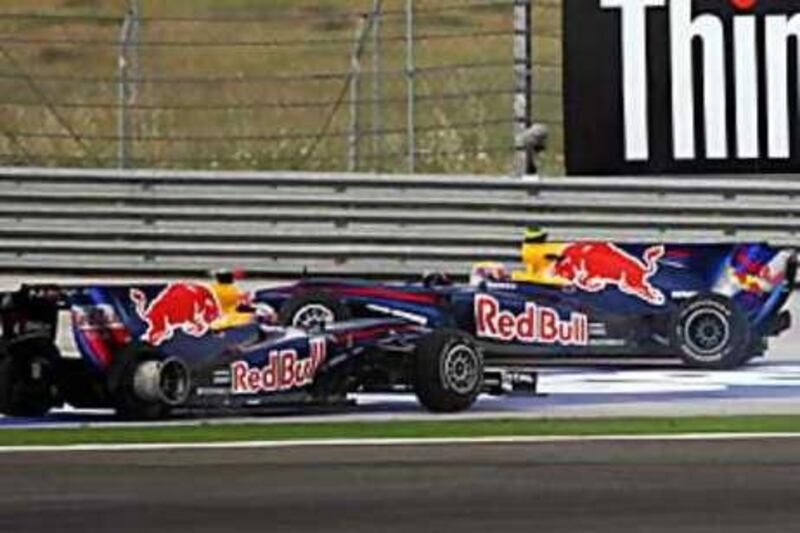Red Bull Racing have become accustomed to fighting McLaren-Mercedes and Ferrari, but this week they have faced a stern battle against a new and hostile adversary - the wider world. The team have been widely criticised for their stance - notably that of Helmut Marko, their motorsport adviser - in the wake of their drivers' collision during last Sunday's Turkish Grand Prix. Mark Webber and Sebastian Vettel were fighting for the lead when the two cars touched on the race's 40th lap, dropping Webber to third place and forcing Vettel to retire.
Afterwards, Marco held Webber wholly responsible, even though it was Vettel who appeared to trigger the accident by moving right when the cars were side by side. This led to widespread questions about their impartiality, and accusations of an uneven playing field, but Red Bull issued a statement denying the complaints. Christian Horner, their sporting director, said: "As has always been the case, both drivers will continue to be given equal treatment. The Turkish Grand Prix has been a costly lesson and we are confident this situation won't happen again."
The team also underlined that Marco has reviewed footage of the incident and, consequently, he now feels blame should be shared. In the race's immediate aftermath, his initial comments attracted a barrage of criticism, not least from fans on the team's own website forum. Horner says there will be clear-the-air talks with both drivers ahead of the Canadian Grand Prix in Montreal, on June 13, but providing transparency over the pecking order of his two stellar drivers could be tricky.
Vettel is a product of the team's driver development programme and was sponsored by Red Bull during his formative years. He was subsequently loaned to BMW Sauber, to fulfil a test and development role, but was not retained because the team did not feel the youngster was quite fast enough at that stage. But this was 2007, when Vettel had barely turned 20. Increasing maturity brought stellar speed and, in September 2008, he became Formula One's youngest race winner when he dominated the Italian Grand Prix at Monza.
At the time he was driving for Toro Rosso, Red Bull's junior sibling, but he was promoted to the senior team last season. Since then there has been precious little to choose between him and Webber. Vettel sometimes had a slight edge in 2009, when the Australian's right leg was still held together by pins following a cycling accident, but this year the balance of power has subtly shifted. Red Bull are a long-standing patron of extreme sports: their marketing programme is geared firmly towards youth and Vettel's image is a perfect complement.
It is an awkward truth, though, that his 33-year-old teammate is at least his equal. Meanwhile, in a separate development, Force India has confirmed the instigation of legal proceedings against Lotus Racing. They allege that the Formula One newcomers have benefited from use of Force India's intellectual property, including a wind tunnel model, without first obtaining permission. @Email:sports@thenational.ae





